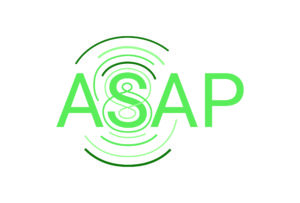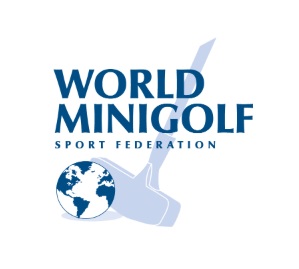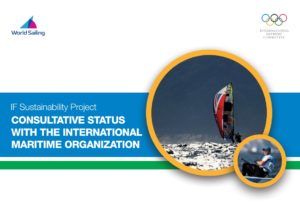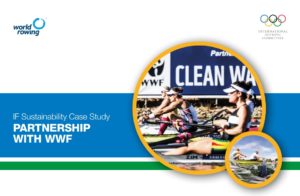
GAISF launches partnership with sportanddev to promote sport for development initiatives
The Global Association of International Sports Federations (GAISF) and sportanddev have today signed a partnership agreement to promote sustainable development initiatives of International Sports […]








Sport can drive sustainable impact through strategic partnerships
Author: Matthew Campelli. Although it’s almost six years old, the research report developed by MIT Sloan and UN Global Compact, ‘Joining Forces: Collaboration and […]


Led by the Czech Olympic Committee, and co-financed by the Erasmus + Programme of the European Union, the ASAP project has for its mission to enable project partners to create, adopt and start implementing integrated sustainability strategies in their organisations, and/or improve the sustainability of their operations.
By translating existing recommendations, guidelines, and best practises into a practical hands-on approach, and by giving this approach a strategic framework, the project helps partner organisations integrate sustainability into the very core of their operations, into their purpose.
To do so, the three years-long project uses a mentor-mentee working method bringing together “sustainability-experienced” National Olympic Committees (Denmark, Finland, Germany) with “sustainability beginners” (Czech Republic, Hungary, Slovakia). Roadmap for the creation of an integrated sustainability strategy will be created as a practical tool for any sport organisation.








The World Minigolf Federation (WMF) organized on October 22, 2019, in cooperation with United Through Sports and the main sponsor of the World Championships 2019 Invengo Group Company Limited an UTS conference in Zhouzhuang, China. Julia Govinden, CEO of United Through Sports made now a clip out of the video material which was provided by WMF and Invengo. The title of the conference was "United Through Minigolf - Building Bridges".





In 2013, the International Canoe Federation (ICF) was approached by Paddle for the Planet (P4P), a registered NGO that unites paddlers and watermen for conservation, about the possibility of forming a partnership. P4P’s signature event is the annual Global Paddling Relay: simultaneous paddling events that start sequentially, on the same day and at the same time, in different time zones all over the world, thereby creating a global relay. Paddlers of any type of paddling craft (rowing boats, dragon boats, canoes, kayaks and others) are united through the event.



As a Non-Governmental Organisation (NGO), World Sailing was granted consultative status within the International Maritime Organization (IMO) in 1999, when the IF was known as the International Sailing Federation (ISAF). Through having this status, World Sailing has been able to discuss relevant issues and provide advice during meetings. However, consultative status does not confer voting rights. World Sailing has been represented at IMO meetings by members of the IF’s International Regulations Commission. World Sailing’s position at IMO was particularly felt during the period when the IMO’s Sub-Committee on Bulk Liquids & Gases (BLG) started to develop “Guidelines for the control and management of ship’s biofouling to minimise the transfer of invasive aquatic species”. The guidelines covered all ships within its scope, including small boats.



Fresh water accounts for less than one per cent of the world’s water bodies, and one billion people currently have no access to safe drinking water. Recognising the vital global importance of clean fresh water, the World Rowing Federation (FISA) and WWF joined forces in 2011 to address this key issue in sustainable development, a crucial element for the sport of rowing and the well-being of its athletes. World Rowing believes it has a responsibility to not only apply environmentally sustainable practices, but also to take a lead in this global issue. Through the partnership, World Rowing has been able to educate rowing communities and the public about the value of clean water.




In 2018, World Sailing teamed up with 11th Hour Racing, an organisation that promotes collaborative and systematic change to benefit the health of the oceans, World Sailing created a sustainability award in order to: Support the implementation of World Sailing’s Sustainability Agenda 2030. Call for innovation across the sailing community to help tackle environmental challenges. Raise awareness about sustainability and inspire the sport community to take similar actions. Give profile and financial support to organisations that are delivering replicable sustainability initiatives Launch a new sustainability award With a sponsor secured for an initial period of three years, the project calls on the sailing community to develop and implement innovative sustainability-oriented projects, and rewards the annual winner with a prize of USD10,000 to help them further develop the initiative.



